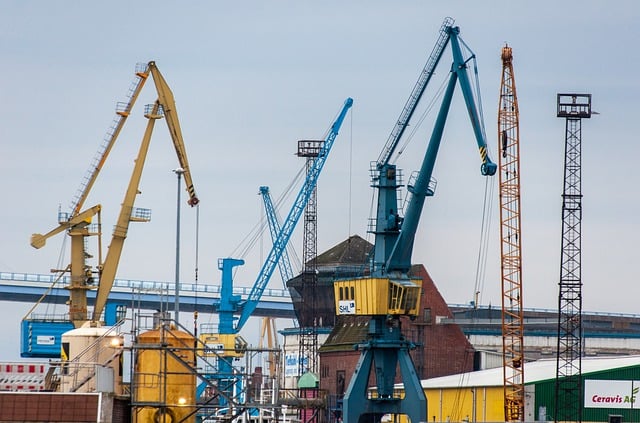The Role of Tech Startups in Disrupting Traditional Industries
The rise of tech startups over the past few decades signifies a profound shift in the landscape of traditional industries. These nimble ventures emerge in response to gaps in the market, often bringing fresh perspectives that challenge outdated practices. When we talk about tech startups, we refer to these innovative companies that leverage technology to create new products or services, often doing so in a way that disrupts established industry norms. This phenomenon has a remarkable ripple effect, pushing traditional companies to adapt or risk obsolescence. Let’s explore how these startups shake up various sectors, their methods of innovation, and the broader implications for both business and society.
To begin, the essence of industry disruption lies in the inherent ability of tech startups to innovate. They’ve mastered the art of identifying niche markets and unmet consumer needs. For instance, consider the transportation industry, which faced an unexpected upheaval thanks to companies like Uber and Lyft. These startups recognized a demand for convenient, affordable ridesharing options. Traditional taxi services struggled to match the convenience and technological edge offered by these platforms. By integrating mobile applications with GPS technology, these companies revolutionized how people think about transportation. This disruption forces existing taxi companies to rethink their strategies, perhaps investing in app development or altering pricing models to compete effectively.
Moreover, the agility of tech startups enables them to pivot quickly in response to market changes. This flexibility contrasts sharply with the often slow-moving nature of traditional firms, which may have numerous bureaucratic layers slowing decision-making processes. Take the retail sector as another prime example. The advent of e-commerce startups like Amazon presented significant challenges to brick-and-mortar stores. These businesses leveraged data analytics, targeted marketing, and efficient supply chain management to create personalized shopping experiences, ultimately leading to a dramatic shift in consumer behavior. The speed with which these startups can iterate their services demonstrates the kind of innovation that has forced even well-established retailers to embrace an omnichannel approach, melding online and offline shopping experiences to retain their customer bases.
Furthermore, tech startups also drive innovation through collaboration, often building ecosystems that include other startups, larger businesses, and academic institutions. In particular, the concept of open innovation has gained traction within the tech world. This approach encourages knowledge sharing and collaboration across different entities. For instance, many startups participate in incubators and accelerators, fostering a culture of learning and mutual support. By attracting diverse talent and expertise, they create environments ripe for innovation. This interconnectedness not only benefits the startups themselves but also enriches the broader industry landscape. As established companies seek collaborative relationships with such startups, they can tap into fresh ideas and technologies that threaten to undermine their market positions while reinvigorating their own operations.
Innovation as a Centerpiece
The very term “innovation” encapsulates the spirit driving tech startups. These companies continuously seek to improve existing products or to create entirely new offerings that enhance user experience. They often harness emerging technologies like artificial intelligence, machine learning, and blockchain to push the boundaries of what is possible. A notable example exists in the financial services sector with the advent of fintech startups. Companies like Square, Stripe, and Robinhood have transformed how we think about payments, investing, and banking. By leveraging technology, these startups have simplified processes, reduced costs, and enhanced accessibility for consumers. This innovation pressures traditional banks to modernize their offerings to retain their customer bases, ultimately benefiting consumers through better services and lower fees.
In healthcare, the disruption driven by tech startups has been especially profound. Startups focusing on telemedicine, wearable health devices, and digital health records have improved patient access to care and personalized medicine. Companies like Teladoc and Zocdoc allow patients to consult with healthcare providers right from the comfort of their homes. This shift not only streamlines the patient experience but also challenges traditional healthcare models, which often involve cumbersome in-person visits and long wait times. As these startups introduce efficiency and convenience, traditional healthcare providers are compelled to adopt new technologies and rethink care delivery models to meet changing expectations from patients.
However, disruption comes with challenges. While tech startups often usher in innovation, they can also create significant disruptions in the job market. As automation, artificial intelligence, and smart technologies become more prevalent, traditional roles in certain industries may become obsolete. For instance, the rise of automated checkout systems in grocery stores means fewer cashiers are needed. This transition can lead to job loss, necessitating a societal emphasis on retraining and reskilling the workforce. Moving forward, communities and governments must invest in education and training programs that prepare individuals for the jobs of the future. This proactive approach helps mitigate the adverse impacts of disruption while maximizing the benefits of technological advancements.
Understanding the Broader Economic Impact
The influence of tech startups extends beyond individual industries. These companies drive economic growth, creating jobs and generating revenue. More importantly, they encourage investment and venture capital, benefiting not only their immediate ecosystems but also the wider economy. When investors pour money into startups, they promote innovation and entrepreneurship, creating a cycle where successful startups inspire new ventures. Cities such as Silicon Valley and New York have become hubs for innovation, attracting talent and resources necessary for startups to thrive. This phenomenon underscores the importance of fostering an environment conducive to startup growth, emphasizing the role of policy, infrastructure, and community support.
Additionally, tech startups often democratize access to goods and services, breaking down traditional barriers that once limited consumers. Companies focused on rental services, like Airbnb and Turo, empower everyday individuals to capitalize on their assets. These platforms provide opportunities for homeowners to rent out spaces and car owners to earn extra income, all while offering consumers more diverse and affordable alternatives to conventional hotels and rental companies. This shift not only benefits consumers financially through competitive pricing but also stimulates local economies by encouraging tourism and localized spending.
At the same time, we should acknowledge the potential downsides of rapid disruption. Instances of market monopolization have emerged, with some startups evolving into major players, raising concerns about competition and consumer choice. As startups grow, they might engage in practices that make it difficult for new, smaller firms to compete. The consolidation of power among a few tech giants is a real concern that policymakers must address proactively. Striking the right balance between fostering innovation through startups and maintaining a competitive marketplace is crucial for long-term societal health.
Looking to the Future: What’s Next for Disruption?
As we look towards the future, it’s clear that tech startups will continue to play a vital role in shaping industries. Emerging technologies, such as quantum computing, augmented reality, and improved connectivity through 5G, will create new avenues for innovation. Startups that leverage these technologies may pioneer developments we can’t even fully envision today. The landscape will surely keep evolving—bringing together tech-savvy individuals who are ready to tackle challenges and push the limits of what’s achievable. This constant evolution sparks excitement and anticipatory discussions about what the future may hold for various industries and the global economy.
Concurrent with impending technological advancements, societal issues like sustainability and climate change will increasingly demand innovative approaches from startups. Businesses focusing on green technologies and sustainable practices have the potential to disrupt traditional sectors like energy and waste management significantly. Startups that offer eco-friendly alternatives or that utilize technology to promote sustainability may redefine industry standards. As consumers become more environmentally conscious, they will advocate for products and services that reflect their values. This phenomenon represents a unique opportunity for innovation while also addressing pressing global issues.
In summary, tech startups do more than just offer new products or services; they fundamentally alter the way we think about and operate within traditional industries. Their impact is multi-dimensional and spans across economic, social, and technological realms. By fostering environments conducive to innovation and adapting to shifting paradigms, we can embrace the opportunities these inspiring ventures present. As we embrace the changes ahead, let’s remember to support local startups and encourage policies that promote sustainable growth, creativity, and inclusivity as we navigate this fascinating journey of transformation.
Frequently Asked Questions
- What defines a tech startup?
- A tech startup is typically a newly established company focused on developing technology-based products or services. It often aims for rapid growth and seeks to meet the demands of a specific market or industry.
- How do tech startups disrupt traditional industries?
- Tech startups disrupt traditional industries by introducing innovative solutions, leveraging technology, and improving consumer experiences. They often fill gaps in the market that established firms have overlooked or neglected.
- What are some examples of industries disrupted by tech startups?
- Several industries have faced significant disruption due to tech startups, including transportation (Uber, Lyft), finance (Square, Stripe), healthcare (Teladoc), and retail (Amazon).
- Why is innovation important within tech startups?
- Innovation is critical for tech startups as it allows them to differentiate themselves in competitive markets, solve pressing consumer problems, and adapt to changing demands. It is an essential component for growth and sustainability.
- What challenges do tech startups face in disruptive markets?
- Tech startups often face challenges such as competition from larger, established firms, funding issues, regulatory hurdles, and the need to build brand recognition and customer trust in rapidly changing markets.



